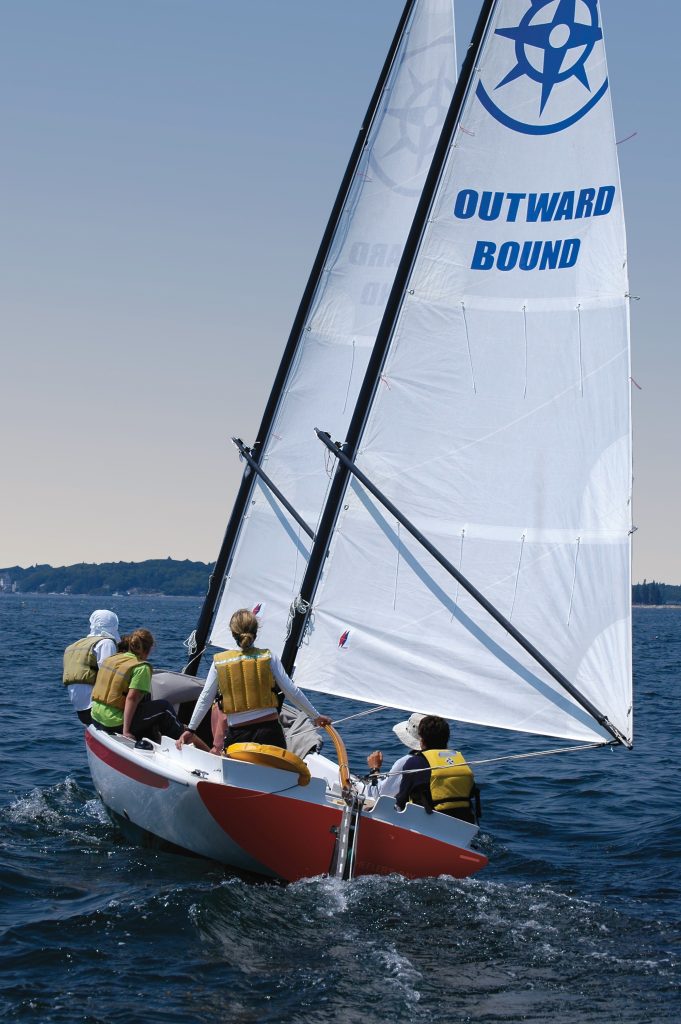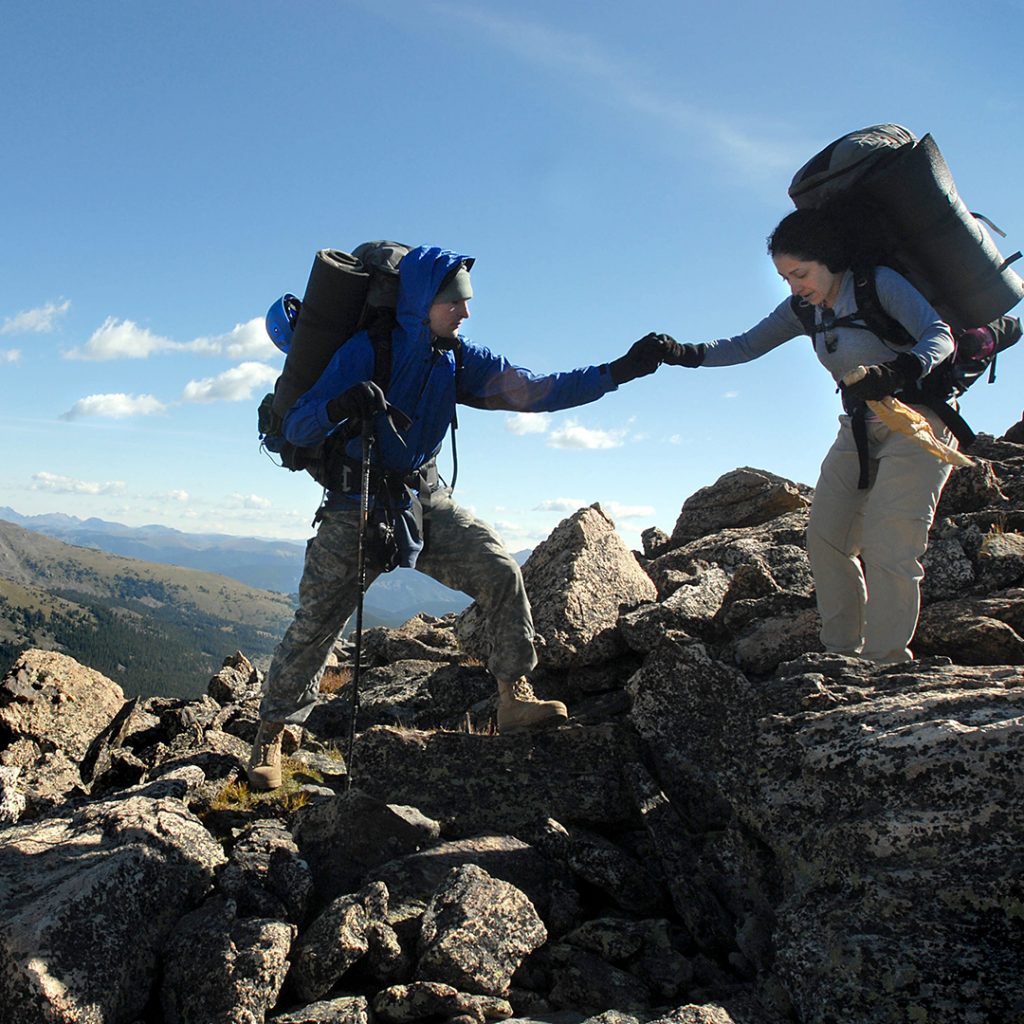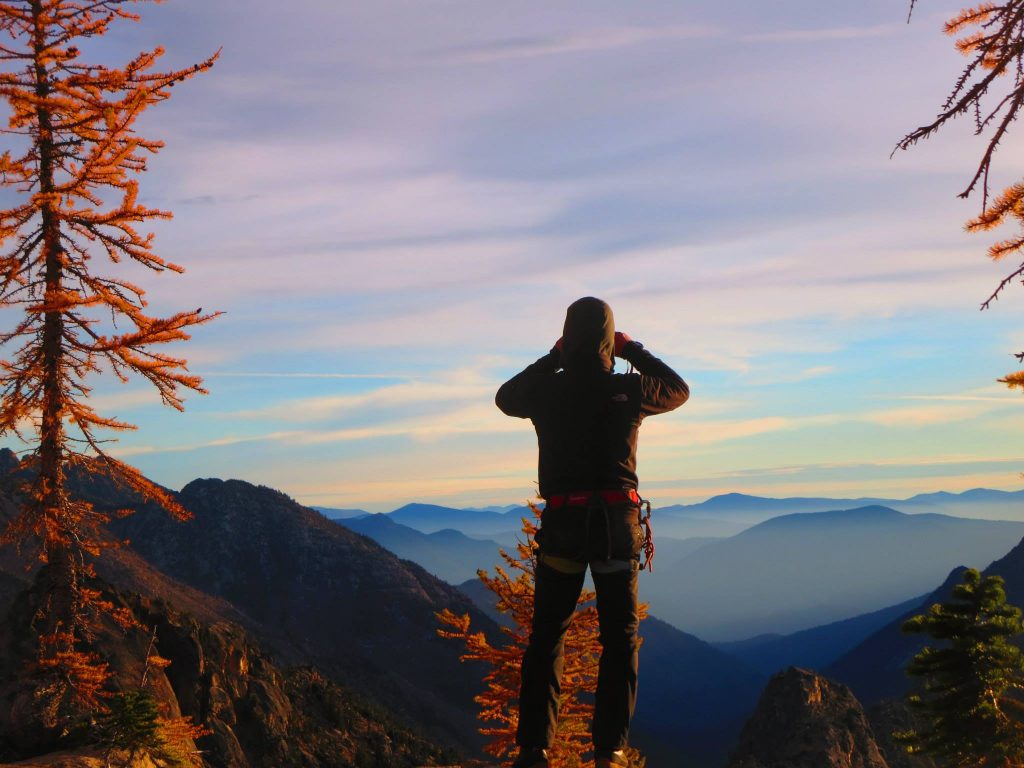Henry McHenry currently serves on the Board of North Carolina Outward Bound School (NCOBS). He began his Outward Bound career with a course in Minnesota in 1968, then started as a Sherpa at NCOBS in 1970 and worked as an Assistant Instructor from 1971-1976 and 1986-1991.
Henry shares his insights on a poem that is important to understanding the Outward Bound motto.
***
At our most recent Board meeting, I found an occasion to recite some of the Tennyson poem “Ulysses,” from which Outward Bound’s motto, To Serve, to Strive and Not to Yield is taken. After Jackson, one of the field staff in attendance, had told us the story of Kurt Hahn and his disciplining of a “guardian” at Gordonstoun for hesitating to prevent a hazing incident, others of the staff told us stories of how compassion – the kind Hahn meant – arises in a crew in the field under stress. Then I asked a question about “Ulysses” to frame an inquiry into the way Outward Bound works. I was hoping to get at something about the magic sauce we, uniquely among our peers and competitors, claim to cook with.
So the question was: Do we hear in Ulysses’ description of himself and his life’s project an individual speaking, or something else? Here is the last half of the poem, for those of us who haven’t memorized it yet:
There lies the port; the vessel puffs her sail.
There gloom the dark, broad seas. My mariners,
Souls that have toiled and wrought and thought with me,
That ever with a frolic welcome took
The thunder and the sunshine, and opposed
Free hearts, free foreheads – you and I are old.
Old age hath yet his honor and his toil.
Death closes all, but something ere the end,
Some work of noble note may yet be done
Not unbecoming men that strove with gods.
The lights begin to twinkle from the rocks;
The long day wanes, the slow moon climbs, the deep
Moans round with many voices. Come, my friends,
Tis not too late to seek a newer world.
Push off, and sitting well in order smite
The sounding furrows, for my purpose holds
To sail beyond the sunset and the baths
Of all the Western stars, until I die.
It may be that the gulfs will wash us down.
It may be we shall touch the happy isles,
And see the great Achilles, whom we knew.
Though much is taken, much abides, and though
We are not now that strength which in old days
Moved heaven and earth, that which we are, we are:
One equal temper of heroic hearts
Made weak by time and fate but strong in will
To strive, to seek, to find, and not to yield.
Who Is This Guy?
Reading through it again, I do hear the voice of one heroic individual – “my purpose holds … until I die.” It is an individual with a life project, an urge to explore the unknown, to risk ruin in service of something greater than himself. And it is a person whose moral center resounds in his invitation to his colleagues, his friends. Addressing them as “my mariners,” “my friends,” he relishes the prospect of their final voyage together. He loves them not only for their past adventures, their toil and craft, their “frolic welcome” of the storms and the sunshine, but more importantly for their seeking together of a newer world. “Ulysses” is an I poem, but more urgently a we poem. The voice here resonates like the “many voices” of the enveloping sea; it is not the voice of one individual, however curious, self-reliant and tenacious he is. It is the voice of an individual enveloped, ringing with community.

Kurt Hahn and Outward Bound
So now I think I know why Hahn put “compassion” as the last and greatest of the five human qualities to be preserved by education. The word does not mean only “sympathy,” or even empathy or respect. It means shared struggle or shared suffering. “The struggle to overcome is the source of renewal,” Hahn said elsewhere. What kind of renewal did he mean? We heard from the field staff Friday night how it works in a group in the field. The sharing of adversity generates, like electricity, not only common purpose but common ground among us and under us, even if the ground is ocean. Common ground is not only that well-ordered engagement of muscle and bone at the oars, but the free hearts and foreheads of crewmates who know what they are all up against together. And the shared struggle that generates compassion is “above all” because it’s what activates all four of the other crucial qualities. We impel people into the struggle to overcome because it renews their equal temper, their will to strive and seek together. It renews common ground.
Is the curiosity which awakens enterprise driven by self-interest only, or by the prospect of a company voyaging together toward discovery? Can there be an undefeatable spirit apart from the support of others? Of course you’d do anything to save your own life, but imagine how far you would pursue another project against resistance if there were not some other person’s life or health or needs at stake. Would you deny yourself something you really wanted or needed unless the group you’ve grown to love needed something else more? Even if you dislike a crewmate, you feel your own struggle in his bearing of thunder and sunshine, and he feels yours, and you know it.

The Return of NC-1
We had six of the old mariners with us the night before the Board meeting – if we can call a mountain crew sailors. The School’s earliest alumni, they came back in recognition of the common bond that holds us all together. Hahn hadn’t much sympathy for the “manifest improvers” who pretend to instill moral wisdom in the young. We are out to teach and learn together – ongoingly – enterprising curiosity, undefeatable spirit, tenacity in pursuit, readiness for sensible self-denial, and above all, compassion, that sharing of struggle and hardship that creates the force-field of “we.” That’s why “Ulysses” – the whole poem, not just the last line – is a founding document of Outward Bound.

Like any eager literary critic, I welcome comments, amendments, criticisms. Thanks, all, for your engaged listening, and for the life we lead together as guardians.
OTHER POSTS YOU MAY LIKE
Read More
Read More
Read More




